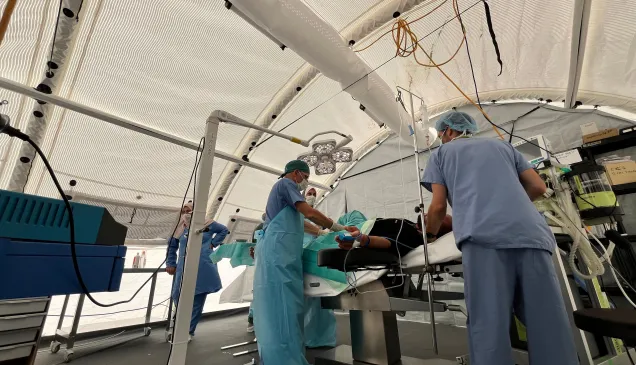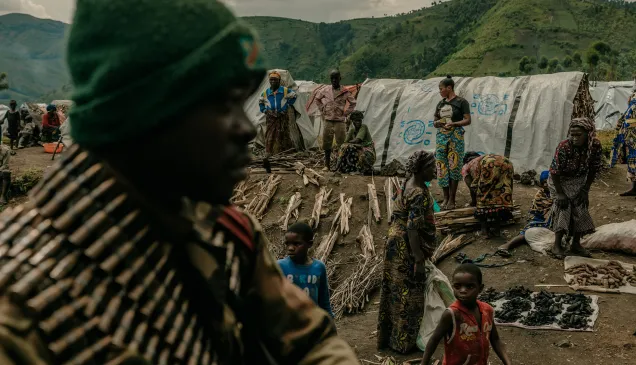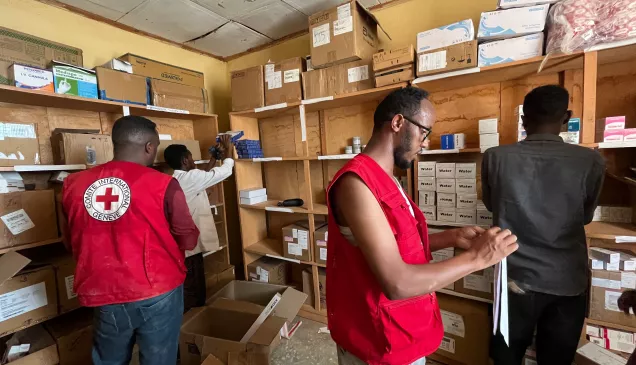Cameroon: Preventing a pandemic amid a crisis
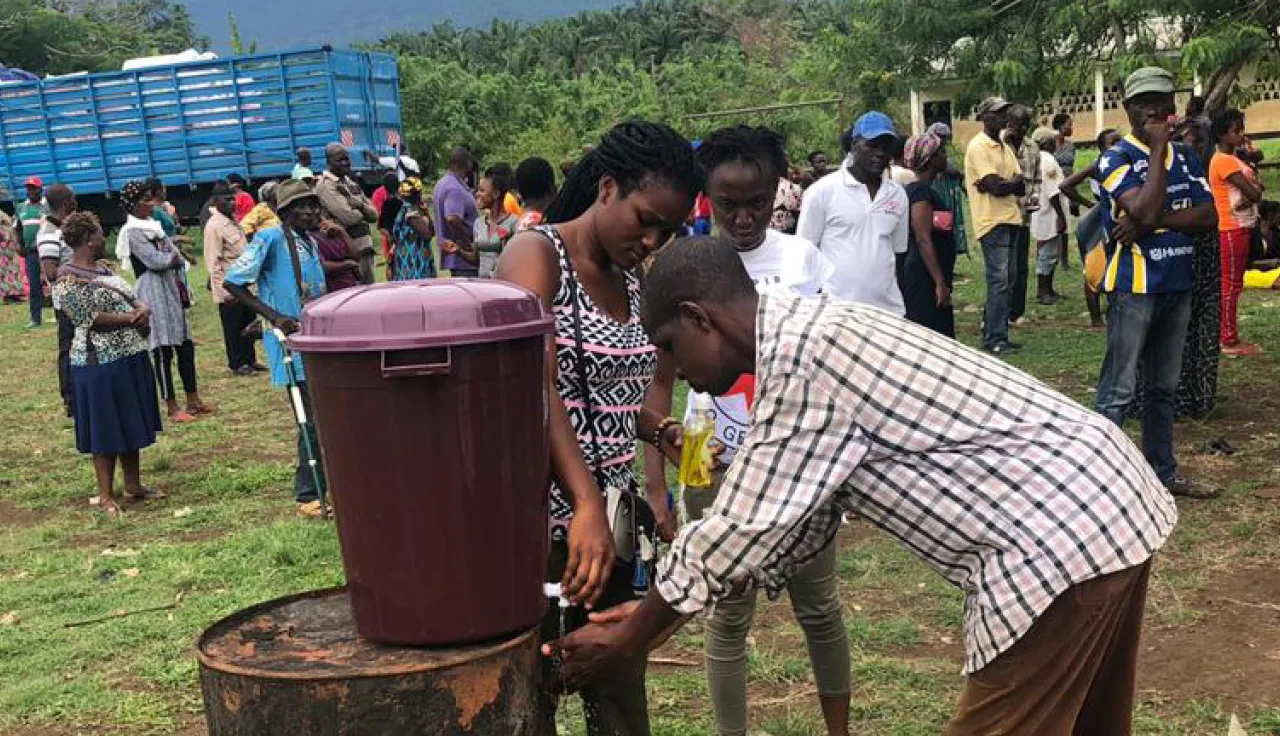
Internally displaced persons (IDPs) in the North West and South West regions are facing new challenges following the outbreak of COVID-19 in Cameroon.
I am afraid of the COVID-19 because if it attacks any of my family members we may die because of little or no health facilities and no money.
This has become a major concern for Laurantine Ngundue, an IDP from Ekona in the South West region. Before the outbreak of the ongoing anglophone crisis, Laurantine was a teacher. She later became a petty trader after losing her teaching job.
To make matters worse, the provisions she used to sell were all destroyed - a consequence of the altercations between the military and armed groups in the area. This forced Laurantine and her family to flee to the bush for safety.
I have stayed in the bush for the past two years for fear of being shot in my home and things are getting harder for me by the day.
Although there is an operational hospital in the area where she has taken refuge, Laurantine worries about the shortage of staff and medication in the facility, coupled with the lack of resources to cover medical bills for herself and for her family.
While the COVID-19 pandemic represents a dramatic threat to life especially in areas experiencing a crisis, violence severely compromises the health infrastructure as well as access to health facilities. This has created a further strain on an already frail health systems and precarious living conditions and is extremely worrying as it impairs the capacity for detection, management and the follow-up of cases of sickness, which in turn increases the risk of transmission.
People who have been displaced by violence are particularly vulnerable to health complications. Their temporary accommodation can be crowded, often with inadequate sanitation and shelter or little access to medical care and proper nutrition. Also, in these conditions, physical distancing can be a challenge.
With the outbreak of COVID-19 my family and I try to follow the preventive measures prescribed by the World Health Organization by washing our hands always.
However, washing of hands and taking preventive measures does not reduce the needs of these vulnerable populations who still struggle to make enough money every day.
"Before the crisis, I owned a provision store which helped me support my family. Unfortunately, since the outbreak of this new disease, my business is not as lucrative as it used to be," Levis adds.
Unlike Levis who has an income-generating activity, many other IDPs in the South West and North West regions are living in the bush in precarious conditions which put them at an even a high risk in the advent of a COVID-19 outbreak. These IDPs who are solely dependent on assistance have become burdened with the additional challenge of improving their hygiene to prevent an outbreak that could worsen their current situation.
Since the COVID-19 outbreak in Cameroon, the ICRC has adapted its existing programmes to the new reality by factoring the pandemic into all its programmes. In addition to its continuous dialogue with authorities and armed actors to promote the respect of human rights and international humanitarian law as well as the life and dignity of people and to ensure their access to basic services, the ICRC has begun the promotion of preventative measures within communities through radio spots, placement of posters at strategic sites and providing stations with water and soap for handwashing in public places.
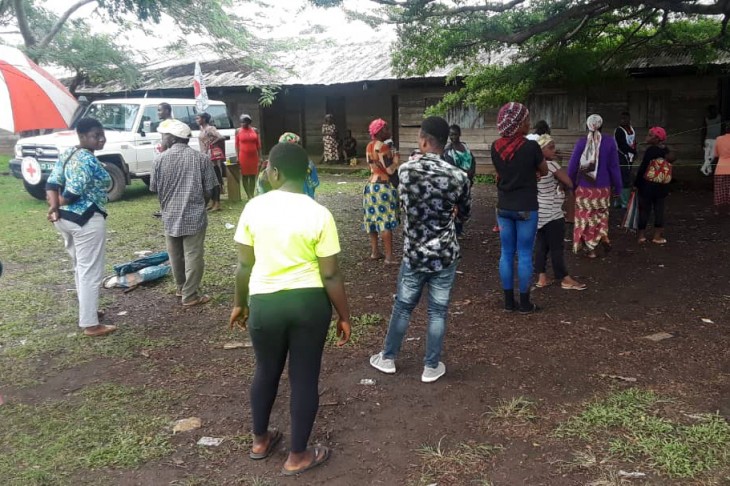
Social distancing applied as the people that ICRC is assisting await EHI to be distributed. Photo: ICRC
In the past month, during a recent assistance project in Ekona, the ICRC distributed 1,252 kits of essential household materials to 650 displaced families. Before the distribution the people being assisted were sensitised on preventive measures against COVID-19 along with demonstrations for effective hand washing. This is now mandatory for every ICRC activity with the communities in Cameroon.
Mama Konla Adeline, one of the people we assisted said, "I am very happy with the assistance given to me by the ICRC and if at all we are to receive such assistance again in the future, if we could be provided with containers to store water, it will be great."
The ICRC's COVID-19 assistance program has also been extended to detention facilities as overcrowding, poor hygiene and lack of ventilation may pose an additional challenge when it comes to preventing and containing infectious diseases. The ICRC provides material assistance to help prison authorities to ensure adequate personal and collective hygiene for detainees to prevent and contain the spread of COVID-19. In light of this, 3,640 detainees in the Douala Central Prison received personal and collective hygiene items. At the same time sanitation and disinfection items including, chlorine, bleach, gloves, brushes with handles, boots, detergents and bars of soap were distributed to the Buea, Bamenda and Yaounde prisons.
In total, almost 20,000 detainees – representing around 60 per cent of the total prison population in Cameroon have benefitted from this assistance. In addition, the ICRC supported the national gendarmerie, including its detention facility located at the State Secretariat for Defense in Yaounde with hygiene and prevention material.

